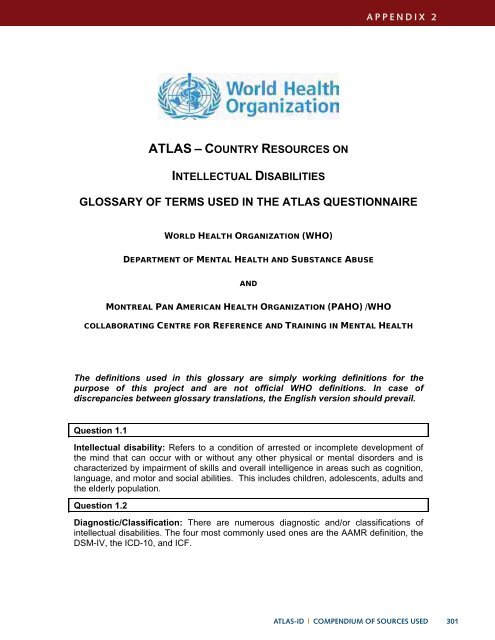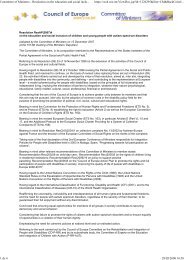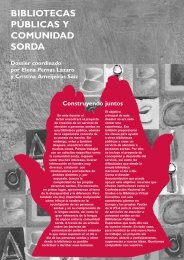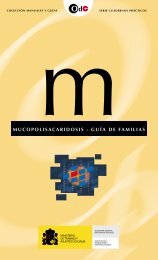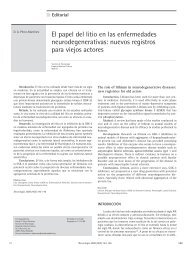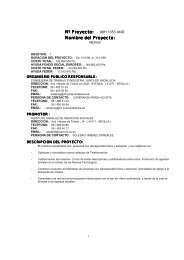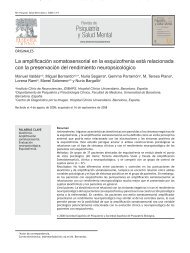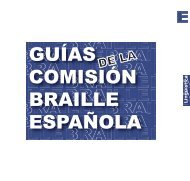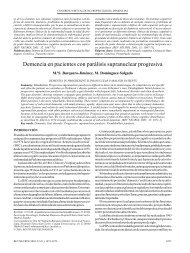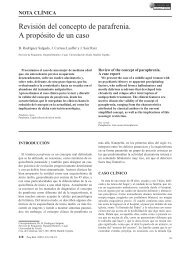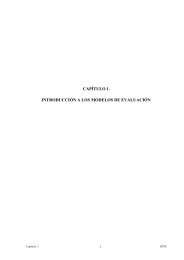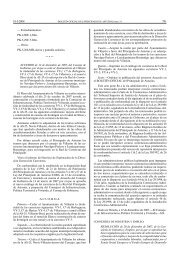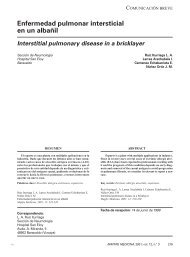- Page 1 and 2:
Atlas Global ResouRces foR PeRsons
- Page 3:
Atlas Global ResouRces foR PeRsons
- Page 7 and 8:
foreword The World Health Organizat
- Page 9:
acknowledgments This document is a
- Page 12 and 13:
Af G h A nist A n / Af G h A nist A
- Page 14 and 15:
Al BA ni A / Al G eri A national ho
- Page 16 and 17:
Andorr A / An G ol A COUNTRY: Andor
- Page 18 and 19:
Ar G entin A / Ar G entin A federac
- Page 20 and 21:
A rmeni A / Austr A li A Yerevan st
- Page 22 and 23:
A ustr A li A / A ustr A li A depar
- Page 24 and 25:
A ustri A / Azer BA ij A n neurolog
- Page 26 and 27:
BA hr A in / BA hr A in COUNTRY: BA
- Page 28 and 29:
B A n G l A desh / B A n G l A desh
- Page 30 and 31:
B A n G l A desh / B A n G l A desh
- Page 32 and 33:
B A r BA dos / Bel A rus national i
- Page 34 and 35:
Bel G ium / Belize fps public healt
- Page 36 and 37:
Benin / Benin • • COUNTRY: Beni
- Page 38 and 39:
Boli V i A / Boli V i A centro de r
- Page 40 and 41:
Bosni A A nd h erze G o V in A / Bo
- Page 42 and 43:
B r A zil / B r A zil Associacao fl
- Page 44 and 45:
B r A zil / B r A zil federação n
- Page 46 and 47:
B r A zil / B r A zil pan American
- Page 48 and 49:
Bul GA ri A / Bul GA ri A ministry
- Page 50 and 51:
Burundi / cA m B odi A union des pe
- Page 52 and 53:
c A n A d A / c A n A d A COUNTRY:
- Page 54 and 55:
c A n A d A / c A n A d A centre de
- Page 56 and 57:
c A n A d A / c A n A d A intellect
- Page 58 and 59:
c A n A d A / c A n A d A offce des
- Page 60 and 61:
c hile / c hile COUNTRY: chile WHO
- Page 62 and 63:
c hile / chin A pan American health
- Page 64 and 65:
chin A / chin A COUNTRY: chinA - ho
- Page 66 and 67:
c olom B i A / c olom B i A institu
- Page 68 and 69:
c on G o / c oo K i sl A nds COUNTR
- Page 70 and 71:
c ost A r ic A / c ôte d' iV oire
- Page 72 and 73:
c ro Ati A / cu BA croatian union o
- Page 74 and 75:
cY prus / cY prus COUNTRY: cYprus W
- Page 76 and 77:
d emocr A tic p eople's r epu B lic
- Page 78 and 79:
d enm A r K / d enm A r K COUNTRY:
- Page 80 and 81:
d ominic A n r epu B lic / d ominic
- Page 82 and 83:
e cu A dor / e cu A dor consejo nac
- Page 84 and 85:
eGY pt / eGY pt egyptian learning d
- Page 86 and 87:
e l sA lV A dor / e l sA lV A dor c
- Page 88 and 89:
e stoni A / e stoni A COUNTRY: esto
- Page 90 and 91:
e thiopi A / f i ji federation for
- Page 92 and 93:
f inl A nd / f inl A nd COUNTRY: fi
- Page 94 and 95:
f r A nce / f rench p olY nesi A le
- Page 96 and 97:
G A m B i A / Geor G i A Gambia fut
- Page 98 and 99:
Germ A n Y / Gh A n A Bundesministe
- Page 100 and 101:
Greece / Gren A d A international A
- Page 102 and 103:
Gu A tem A l A / Gu A tem A l A con
- Page 104 and 105:
Gu Y A n A / hA iti COUNTRY: GuYAnA
- Page 106 and 107:
h ondur A s / h un GA r Y pan Ameri
- Page 108 and 109:
i cel A nd / i ndi A COUNTRY: icelA
- Page 110 and 111:
i ndi A / i ndi A disability india
- Page 112 and 113:
i ndonesi A / i ndonesi A COUNTRY:
- Page 114 and 115:
i ndonesi A / i r A n world health
- Page 116 and 117:
i rel A nd / i rel A nd COUNTRY: ir
- Page 118 and 119:
i t A lY / i tA l Y COUNTRY: itAlY
- Page 120 and 121:
jA m A ic A / j A p A n ministry of
- Page 122 and 123:
j A p A n / j A p A n japan council
- Page 124 and 125:
j A p A n / j ord A n ministry of h
- Page 126 and 127:
Ken Y A / Ken Y A COUNTRY: KenYA WH
- Page 128 and 129:
Kiri BAti / Kuw A it COUNTRY: KiriB
- Page 130 and 131:
K Y r GY zstA n / lA o p eople’s
- Page 132 and 133:
l e BA non / l e BA non Arab organi
- Page 134 and 135:
l e BA non / l e BA non national As
- Page 136 and 137:
l i BY A n Ar AB jA m A hiri Y A /
- Page 138 and 139:
l u X em B our G / mA d AGA sc A r
- Page 140 and 141:
mA l A wi / mA l A Y si A national
- Page 142 and 143:
mA l A Y si A / mA l A Y si A malay
- Page 144 and 145:
m A l I / mA ltA hôpital du point
- Page 146 and 147:
mA ur I tA n IA / mA ur I t I us Ce
- Page 148 and 149:
mex IC o / mex IC o Confederacion m
- Page 150 and 151:
mex IC o / mIC rones IA universidad
- Page 152 and 153:
m on G ol IA / m oro CC o World hea
- Page 154 and 155:
m o ZA m BI que / nA m IBIA Institu
- Page 156 and 157:
nep A l / nep A l Country: nepAl WH
- Page 158 and 159:
n etherl A n D s / n etherl A n D s
- Page 160 and 161:
n e W Ze A l A n D / n e W Ze A l A
- Page 162 and 163:
nICA r AG u A / nICA r AG u A Asoci
- Page 164 and 165:
n í G er / nI ue World psychiatric
- Page 166 and 167:
om A n / om A n Country: omAn WHo r
- Page 168 and 169:
p AKI st A n / p AKI st A n Disable
- Page 170 and 171:
p A l A u / p A n A m A Country: pA
- Page 172 and 173:
p A n A m A / p A pu A n e W Gu I n
- Page 174 and 175:
peru / peru Country: peru WHo regio
- Page 176 and 177:
p h I l I pp I nes / p h I l I pp I
- Page 178 and 179:
p ol A n D / p ol A n D Country: po
- Page 180 and 181:
p uer to rIC o / qA tA r Country: p
- Page 182 and 183:
epu B l IC of Kore A / r epu B l IC
- Page 184 and 185:
epu B l IC of m ol D ov A / r epu B
- Page 186 and 187:
epu B l IC of vI et nA m / r epu B
- Page 188 and 189:
om A n IA / r om A n IA Country: ro
- Page 190 and 191:
uss IA n f e D er At I on / r uss I
- Page 192 and 193:
W A n DA / r W A n DA fédération
- Page 194 and 195:
sAI nt vI n C ent A n D the Gren AD
- Page 196 and 197:
sA u DI Ar ABIA / sene GA l nationa
- Page 198 and 199:
s er BIA / sI err A l eone ministry
- Page 200 and 201:
sI n GA pore / s lov AKIA ministry
- Page 202 and 203:
s lov AKIA / s loven IA slovak unio
- Page 204 and 205:
s olomon Isl A n D s / s om A l IA
- Page 206 and 207:
s outh Afr ICA / sp AI n statistics
- Page 208 and 209:
s r I lA n KA / s r I lA n KA Centr
- Page 210 and 211:
su DA n / s ur I n A me ministry of
- Page 212 and 213:
sW e D en / sW e D en föreningen J
- Page 214 and 215:
sWI t Z erl A n D / sWI t Z erl A n
- Page 216 and 217:
tAJIKI st A n / t h AI l A n D Coun
- Page 218 and 219:
t he former y u G osl A v r epu B l
- Page 220 and 221:
to G o / t o K el A u Country: toGo
- Page 222 and 223:
t r I n IDAD A n D t o BAG o / tun
- Page 224 and 225:
t ur K ey ( r epu B l IC of) / t ur
- Page 226 and 227:
uGA n DA / uGA n DA Country: uGAnDA
- Page 228 and 229:
uGA n DA / uGA n DA people with Dis
- Page 230 and 231:
uK r AI ne / uK r AI ne ukrainian h
- Page 232 and 233:
u n I te D Ar AB e m I r A tes / u
- Page 234 and 235:
u n I te D K I n GD om / u n I te D
- Page 236 and 237:
u n I te D r epu B l IC of tA n ZA
- Page 238 and 239:
u n I te D s t Ates of Amer ICA / u
- Page 240 and 241:
u n I te D s t Ates of Amer ICA / u
- Page 242 and 243:
u ru G u A y / u ru G u A y Comisio
- Page 244 and 245:
v A nu A tu / v ene Z uel A state l
- Page 246 and 247:
West B A n K A n D G AZA str I p /
- Page 248 and 249:
Z A m BIA / Z I m BABW e Zambia Ass
- Page 250 and 251:
Z I m BABW e / Z I m BABW e ministr
- Page 253 and 254: action on Disability & Development
- Page 255 and 256: interna tional organizations Disabl
- Page 257 and 258: l'arche internationale interna tion
- Page 259 and 260: un special rapporteur on Disability
- Page 261: egional offce for europe http://www
- Page 264 and 265: appen D ix 1 3.1.2 If no, are intel
- Page 266 and 267: appen D ix 1 5.2 Please indicate th
- Page 268 and 269: appen D ix 1 5.5 Is there a governm
- Page 270 and 271: appen D ix 1 7.4.1 Only for governm
- Page 272 and 273: appen D ix 1 10.5.3 Is there a nati
- Page 274 and 275: appen D ix 1 3.1.2 S’il n’exist
- Page 276 and 277: appen D ix 1 5.2 Quels services son
- Page 278 and 279: appen D ix 1 5.5 Existe-t-il un sys
- Page 280 and 281: appen D ix 1 7.4.1 Uniquement pour
- Page 282 and 283: appen D ix 1 10.5.3 Existe-t-il un
- Page 284 and 285: appen D ix 1 3.1.2 ¿Si no se encue
- Page 286 and 287: appen D ix 1 5.2 Por favor indique
- Page 288 and 289: appen D ix 1 5.5 ¿Existe un sistem
- Page 290 and 291: appen D ix 1 7.4.1 Únicamente en o
- Page 292 and 293: appen D ix 1 10.5.3 ¿Existe en su
- Page 294 and 295: appen D ix 1 3.1.2 Если нет,
- Page 296 and 297: appen D ix 1 5.2 Пожалуйст
- Page 298 and 299: appen D ix 1 5.5 Существуе
- Page 300 and 301: appen D ix 1 7.4 Существую
- Page 304 and 305: appen D ix 2 a) American Associatio
- Page 306 and 307: appen D ix 2 • Asylum-type instit
- Page 308 and 309: appen D ix 2 General work skills, t
- Page 310 and 311: appen D ix 2 References • Braddoc
- Page 312 and 313: appen D ix 2 a) Classification de l
- Page 314 and 315: appen D ix 2 • Soutien en milieu
- Page 316 and 317: appen D ix 2 Programme d’éducati
- Page 318 and 319: appen D ix 2 Question 7.4 Standards
- Page 320 and 321: appen D ix 2 ATLAS - RECURSOS NACIO
- Page 322 and 323: appen D ix 2 áreas específicas, t
- Page 324 and 325: appen D ix 2 Pregunta 5.2.3 Rehabil
- Page 326 and 327: appen D ix 2 Pregunta 6.1 Respiro f
- Page 328 and 329: appen D ix 2 Referencias • Braddo
- Page 330 and 331: appen D ix 2 ������ 1.2
- Page 332 and 333: appen D ix 2 • ������
- Page 334 and 335: appen D ix 2 ������ 5.2
- Page 336 and 337: appen D ix 2 ������ 5.4
- Page 338: appen D ix 2 ������ •


